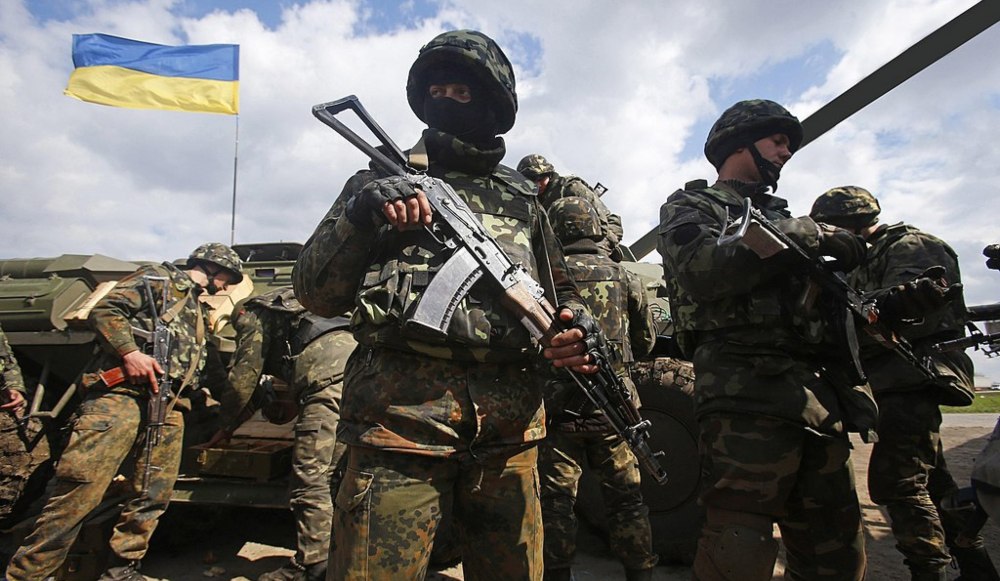
“The most important story of our time.” That’s how journalist George Packer describes the war in Ukraine in his article in the current issue of The Atlantic.
Packer traveled to Ukraine, although as he writes, “I had no business going” there. It has been too long since he was a war correspondent. He is too old. He didn’t speak the language. But he managed to become a courier with emergency medical supplies as his calling card and went because it is “the most important story of our time.”
He went before Ukraine’s recent successful counter-offensive, before Putin ordered conscription in Russia and before Putin’s most recent nuclear saber-rattling.
Two themes are clear: the determination of the Ukrainian people who are convinced they will win this war for their freedom and democracy, and the de-moralizing state of the American democracy he left behind. The sub-title of Packer’s article is, “How ordinary Ukrainians rallied to save their nation –- and defend the values Americans claim to hold.” Against the resolve and heroism of the Ukrainian people and their leaders, the state of things here in “the land of the free and home of the brave” seems nearly incomprehensible.
Which is one of the reasons that the Ukrainian War is “the most important story of our time.” As dark and battered as Ukraine is, it casts a revealing light on the shadowed condition of the rest of the world, America in particular.
Packer describes something the Ukrainians designate with a deceptively bland term, “self-organization.” It means not waiting for someone else to take action or for some centralized authority to say what you can or should do. It means “ordinary Ukrainians” taking whatever spontaneous action is needed. With every reason to complain, to whine, to blame someone else, Ukrainians have instead taken action to help those in need and to take the fight to the Russian invaders.
The Ukrainian journalist and philosopher, Volodymyr Yermolenko, told Packer, “I think self-organization comes from an idea of community which is very deep in our culture. In Ukrainian we call it hromada. The idea is that politics is about horizontal relations between people and not about vertical relations of power.” Which recalls what De Tocqueville reported as the distinctive characteristic of the new American democracy in the early 19th century — the engagement, the associational activities, the participation of Americans in their fledgling democracy and society.
Have we surrendered the “horizontal relations between people” in favor of “vertical relations of power”? We seem, at times, much more focused on what happens in Washington D.C. or on Twitter than on what happens where we are.
Here’s Packer as he gets ready to set out for Ukraine,
“In the days before my trip, I had a feeling of nausea that I recognized as dread. Not of the place I was going, but of the place I was leaving behind, of the LET’S GO BRANDON signs and the school-board shutdowns and the next mass shooting, the prospect that our experiment in people coming from all over to run their own affairs together was finished. For the first time in my life, I felt hopeless about America. And because I have no transcendent beliefs, the loss of this earthly one left a void of meaning that made me sick.
“Here was another motive [for making the trip] — the strongest and most dubious of all. I wanted a gulp of Ukrainian air. I wanted to breathe its hope. What a thing to ask of people fighting for their lives.”
Discover more from Post Alley
Subscribe to get the latest posts sent to your email.

I wonder how much of our current vertical rather than horizontal power structure, which does leave so many in despair with perceived powerlessness, has to do with the loss of local newspapers.
When everyone shares local news calling attention to what happened at the council meeting, when the local rose society is meeting, what couple had a wedding last weekend, we share a common experience and focus on our connecting lives as neighbors.
National news, exploited and twisted for emotional content, drives our attention away from getting the potholes filled and talking about funding for the city park.
Talking together about what is happening in our shared community, rather than posting on social media, is missing from all our lives.